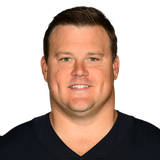
Foul Language: The NFL is cracking down on the use of the N-word on the football field
This story appears in the Oct. 24–31, 2016 issue of Sports Illustrated. Since then, there has been one additional known case of a player getting penalized for using the n-word: Jaguars WR Marquis Lee said he was flagged for directing the word at his opponent in Jacksonville’s 33–16 Week 7 loss to the Raiders. Subscribe to the magazine here.
While merciless taunting and sexually suggestive celebrations have become embarrassments to the NFL this year, the league has for the last two seasons been emphasizing a different type of inappropriate behavior that can result in a 15-yard penalty.
Two years ago—following a push by the Fritz Pollard Alliance, a group named for the man who became the first African-American coach in the NFL, in 1921, and advocates for the hiring of minorities for NFL coaching positions—the league took a firmer stance on players using the n-word on the field: Under the abusive language section of unsportsmanlike conduct, which covers things said “to opponents, teammates, officials or representatives of the League,” referees could levy a 15-yard penalty when they heard the word.
The rule book has long stated that “using abusive, threatening, or insulting language or gestures” could result in an unsportsmanlike-conduct penalty. In 2014 abusive language was further defined by the competition committee to include “the use of abusive, obscene or racially and sexually charged language.”

There are only two known cases of officials penalizing players for using the word—49ers quarterback Colin Kaepernick (who denied saying it) and Buccaneers receiver Louis Murphy, both in 2014. An NFL spokesman declined to say how many times players have been flagged for using the n-word, but while there were 20 penalties for abusive language in 2014 and 15 in ’15, through Week 5 this year there had been nine such penalties. Two former officials who are still connected to the NFL said they're unaware of any other flags having been thrown for use of that word, and they say that current officials tell them that the word's use on the field has decreased significantly.
Still, the threat of a penalty has not discouraged players from using the word.
“It’s [said] all the time,” says Carolina fullback Mike Tolbert, who is black. “The only way that it gets called is if the referee is right up on you and you say it to the person. But we say it on the field all the time, to be honest. We say it to each other. You run somebody over, and you talk trash, and they talk trash back. It's part of [the game].”
The word is one of the most freighted in the English language. Long used to oppress African-Americans, the word was adopted by them in recent decades and the ending changed from ---ger to ---ga, and it has even become a term of endearment from one African-American to another. “Growing up as an ’80s baby,” says Tolbert, who was born in 1985 in Carrollton, Ga., “the word has been desensitized.”
But John Wooten, chairman of the Fritz Pollard Alliance, disagrees. “Don’t say that to me. That is a cop-out,” says Wooten, 79, who played guard for Cleveland and Washington from 1959 to ’68. In ’67, Wooten was one of several black athletes, including Jim Brown, who supported Muhammad Ali's opposition to the Vietnam War at a summit in Cleveland.
“The word was created to make people of color feel that they were inferior in every sense of the word,” says Wooten. “That’s what the word meant. And that word cannot be defended.”

Gerry Austin spent 25 years as an NFL official before joining ESPN’s Monday Night Football crew as a rules analyst in 2012. He says one current official told him that he gave a black player a warning about using the word. The player replied that he was “talking to a brother.”
“And the official said, ‘If you don’t want to be called that by a white player, then you shouldn’t want to be called that [by anyone], because it’s a derogatory remark. So knock it off,’” says Austin. “It doesn't matter who is saying it to whom. [The NFL] wants that eliminated. They want the n-word to go away.”
There have been no reported examples in recent years of a white NFL player using the word in a derogatory way toward an African-American player during a game. But in 2013 then Eagles receiver Riley Cooper, who is white, was caught by a cell phone camera telling a security guard at a Kenny Chesney concert that he’d “fight every n----- here.” He returned to his job and a mostly black locker room with no suspension, only a modest fine, and was forced to attend sensitivity training. That same year it was revealed during a broader investigation into bullying by then Dolphins guard Richie Incognito, who is white, toward teammate Jonathan Martin, who is black, that Incognito had used the word in messages to Martin. Incognito was suspended for three months as a result of the investigation.
Tolbert says he has never heard the word used in a defamatory way on the field, and if it were ever directed at him, he implied that he would react in such a way that he would wind up being ejected.

Two-thirds of the players in the league are black. Even if the NFL does everything it can, is it possible to eliminate the use of the word on the football field?
“It may not be able to be eradicated in the league,” Wooten says. “But I think that officials should continue to make the call. When they hear it, whatever its intent, there’s no excuse. If you hear the word and you hear who used the word, throw the flag immediately.”
This article originally appeared on






































































































































